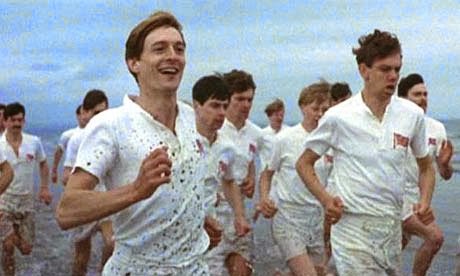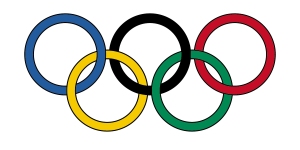The Olympic Games begun at Olympia in Greece in 776 BC. The Greek calendar was based on the Olympiad, the four-year period between games. The games were staged in the wooded valley of Olympia in Elis. Here the Greeks erected statues and built temples in a grove dedicated to Zeus, supreme among the gods. The greatest shrine was an ivory and gold statue of Zeus. Created by the sculptor Phidias, it was considered one of the Seven Wonders of the World. Scholars have speculated that the games in 776 BC were not the first games, but rather the first games held after they were organized into festivals held every four years as a result of a peace agreement between the city-states of Elis and Pisa. The Eleans traced the founding of the Olympic games to their King Iphitos, who was told by the Delphi Oracle to plant the olive tree from which the victors' wreaths were made.
According to Hippias of Elis, who compiled a list of Olympic victors c.400 BC, at first the only Olympic event was a 200-yard dash, called a stadium. This was the only event until 724 BC, when a two-stadia race was added. Two years later the 24-stadia event began, and in 708 the pentathlon was added and wrestling became part of the games. This pentathlon, a five-event match consisted of running, wrestling, leaping, throwing the discus, and hurling the javelin. In time boxing, a chariot race, and other events were included.
The victors of these early games were crowned with wreaths from a sacred olive tree that grew behind the temple of Zeus. According to tradition this tree was planted by Hercules (Heracles), founder of the games. The winners marched around the grove to the accompaniment of a flute while admirers chanted songs written by a prominent poet.
The Olympic Games were held without interruptions in ancient Greece. The games were even held in 480 BC during the Persian Wars, and coincided with the Battle of Thermopylae. Although the Olympic games were never suspended, the games of 364 BC were not considered Olympic since the Arkadians had captured the sanctuary and reorganized the games.
After the Battle of Chaironeia in 338 BC, Philip of Makedon and his son Alexander gained control over the Greek city-states. They erected the Philippeion (a family memorial) in the sanctuary, and held political meetings at Olympia during each Olympiad. In 146 BC, the Romans gained control of Greece and, therefore, of the Olympic games. In 85 BC, the Roman general Sulla plundered the sanctuary to finance his campaign against Mithridates. Sulla also moved the 175th Olympiad (80 BC) to Rome.
The games were held every four years from 776 BC to 393 AD, when they were abolished by the Christian Byzantine Emperor Theodosius I. The ancient Olympic Games lasted for 1170 years.
The successful campaign to revive the Olympics was started in France by Baron Pierre de Coubertin late in the 19th century. The first of the modern Summer Games opened on Sunday, March 24, 1896, in Athens, Greece. The first race was won by an American college student named James Connolly.













